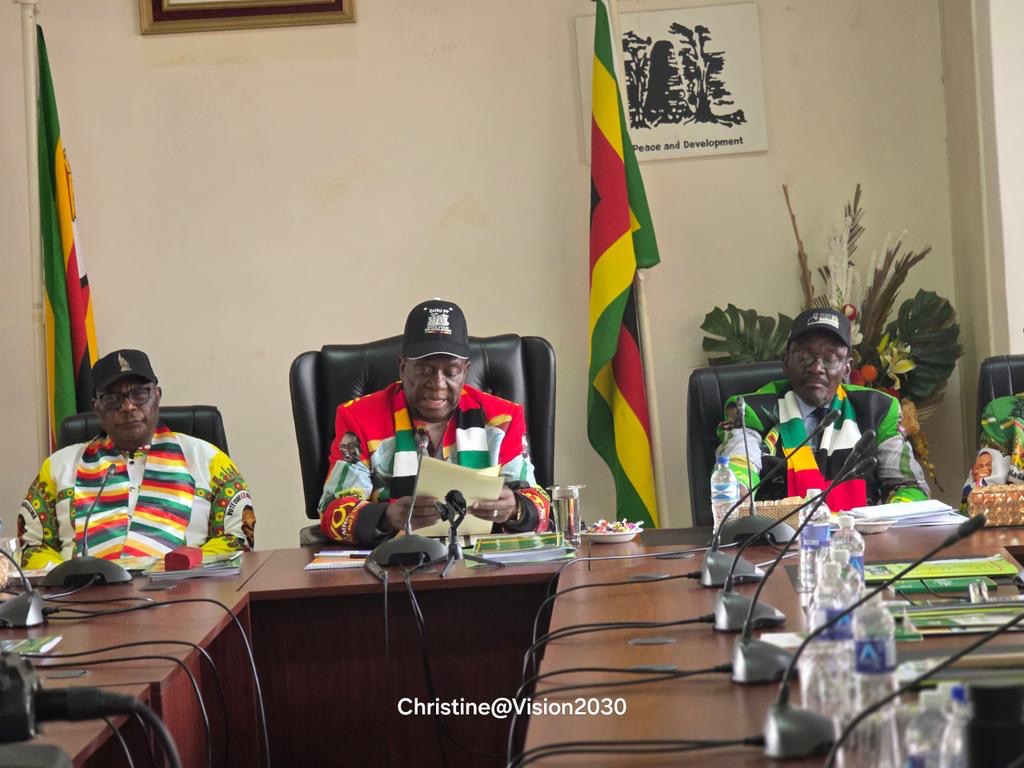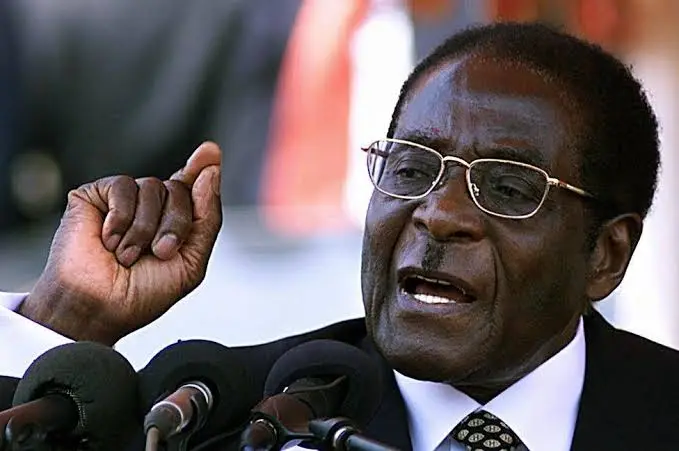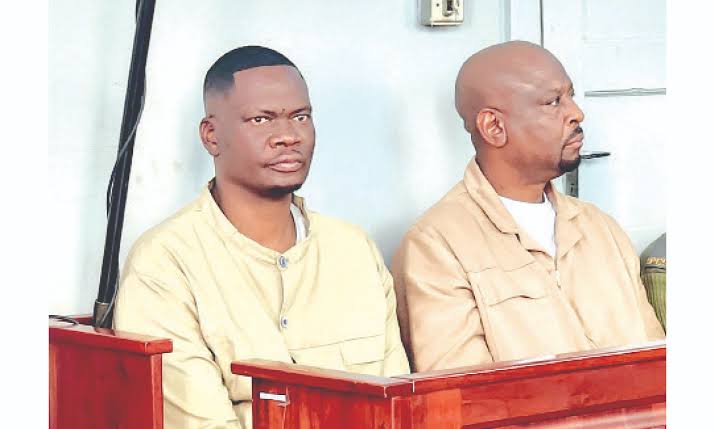By Victor Fanuel
HARARE – Zimbabwe’s political tensions have flared after Zanu PF’s legal affairs chief and justice minister, Ziyambi Ziyambi, accused Vice President Constantino Chiwenga of “treasonous” conduct.
In a 25-page dossier presented to President Emmerson Mnangagwa before the Zanu PF politburo meeting on September 17, 2025, Chiwenga alleged that the president’s allies — Kudakwashe Tagwirei, Wicknell Chivhayo, Scott Sakupwanya and Delish Nguwaya — had “stolen more than US$3.2 billion of government funds.”
The dossier further alleged that Tagwirei, Chivhayo, Sakupwanya and Nguwaya had “turned the president’s private office into a place where key government decisions are made.”
“These criminals have brazenly looted our state coffers with impunity,” Chiwenga wrote.
“We cannot fold our hands and watch these criminals corrupt and bribe our structures and destroy our party.”
He demanded their arrest, declaring: “The time for silence and inaction is over.”
When Chiwenga presented his dossier, Mnangagwa reportedly received it coolly, saying he would respond in due course.
However, before issuing his formal response, Mnangagwa initiated sweeping changes within the Zanu PF Politburo on September 23, 2025, reshaping the power dynamics within the ruling party.
In those reshuffles, Ziyambi Ziyambi — long regarded as one of Mnangagwa’s most loyal allies and one of the architects of the party’s legal and constitutional strategies — was appointed secretary of legal affairs, effectively becoming the president’s chief political defender within party structures.
The same changes saw Obert Mpofu reassigned from secretary general to secretary for information communication and technology (ICT), with Jacob Mudenda taking over Mpofu’s post.
Patrick Chinamasa, a veteran party figure also aligned to Mnangagwa’s faction, was appointed secretary of finance, further consolidating Mnangagwa’s control over key administrative levers within Zanu PF.
Mnangagwa, known for his shrewd and often covert political manoeuvring, is a calculating strategist who prefers to use trusted proxies to execute his political battles — and he appears to have unleashed Ziyambi as his chief attack dog against Chiwenga.
Ziyambi’s meticulously crafted response to Chiwenga’s dossier came just days after these reshuffles — a development that mirrors a strategy choreographed to ensure Mnangagwa’s most trusted lieutenants were in command of the party’s legal and information machinery before the counterattack was launched.
In his written response, Ziyambi dismissed Chiwenga’s claims as “false, malicious and reckless.”
“Zimbabwe is a constitutional democracy with institutions to deal with such matters. Individuals have no legal mandate to investigate their perceived competitors,” he said.
Ziyambi added that the contested deals, including the Kuvimba Mining House sale and the Pomona waste management contract, had received full Cabinet approval.
“Zanu PF does not own any shares in Sakunda Holdings.
All contracts complied with the Public Procurement and Disposal of Public Assets Act,” Ziyambi wrote.
Chiwenga had also accused Mnangagwa of plotting to extend his rule beyond 2028 through the so-called ‘2030 Agenda.’
Ziyambi replied that the plan was a legitimate Zanu PF conference resolution.
“There is nothing unconstitutional about it,” he said.
Party insiders described the September 17 meeting where Chiwenga presented his dossier as tense.
After Ziyambi’s scathing counterattack, Chiwenga is understood to have spoken briefly.
He reportedly said: “I’ve listened to all your presentations and I’m convinced that all of you support Zvigananda. It’s okay. I acknowledge it.”
The room reportedly fell silent.
In closing, Ziyambi warned that Chiwenga’s actions “border on treason.”
“The document advocates the unlawful removal of a constitutionally elected president.
Any such ambitions should be crushed,” he wrote.
Ziyambi’s language and tone evoked echoes of November 2017, when, at the height of rising tensions between then-President Robert Mugabe and the military, the Zanu PF spokesperson Simon Khaya Moyo similarly condemned Chiwenga’s pre-coup remarks as “treasonous.”
At that time, Chiwenga — then Zimbabwe Defence Forces Commander — had warned that the military would not hesitate to “take corrective measures” if the gains of the liberation struggle were under threat.
Moyo’s response, viewed then as a defence of Mugabe’s civilian authority, described Chiwenga’s statement as “an outrageous vitiation of professional soldiership” and a threat to national peace and stability.
“Consistent with the guiding principle of the national liberation struggle, the ruling Zimbabwe African National Union Patriotic Front (Zanu PF) reaffirms the primacy of politics over the gun,” Moyo said in 2017 — a statement that now feels like déjà vu, as Ziyambi’s warning to Chiwenga mirrors that same sentiment.
This confrontation — the first open exchange between Mnangagwa and Chiwenga since Mugabe’s ouster in 2017 — marks Zanu PF’s deepest internal crisis since the coup.
It has reignited fears of another struggle for power at the heart of government.
Tagwirei’s elevation to the Zanu PF central committee on Wednesday, despite weeks of resistance from Chiwenga, has further intensified the conflict.
Reports suggest that Tagwirei is believed to harbour presidential ambitions.



